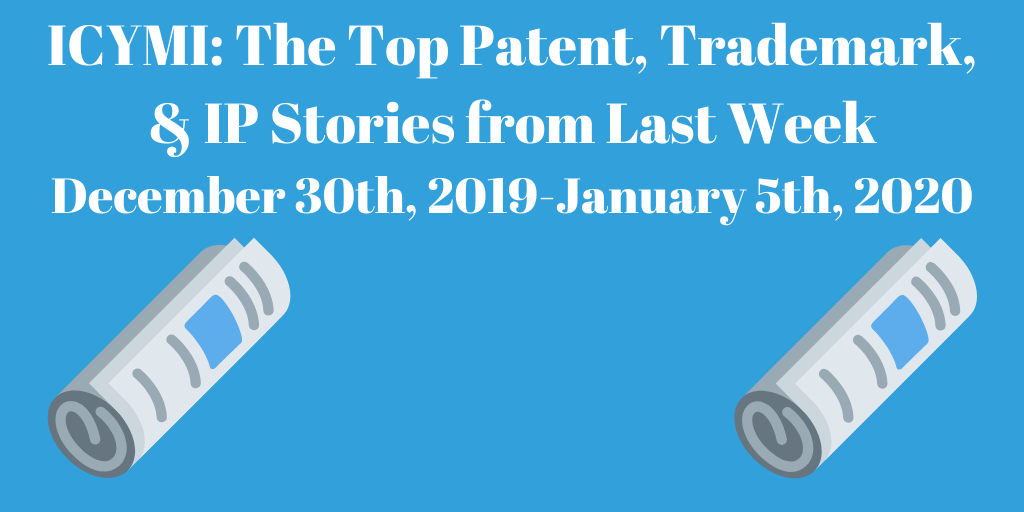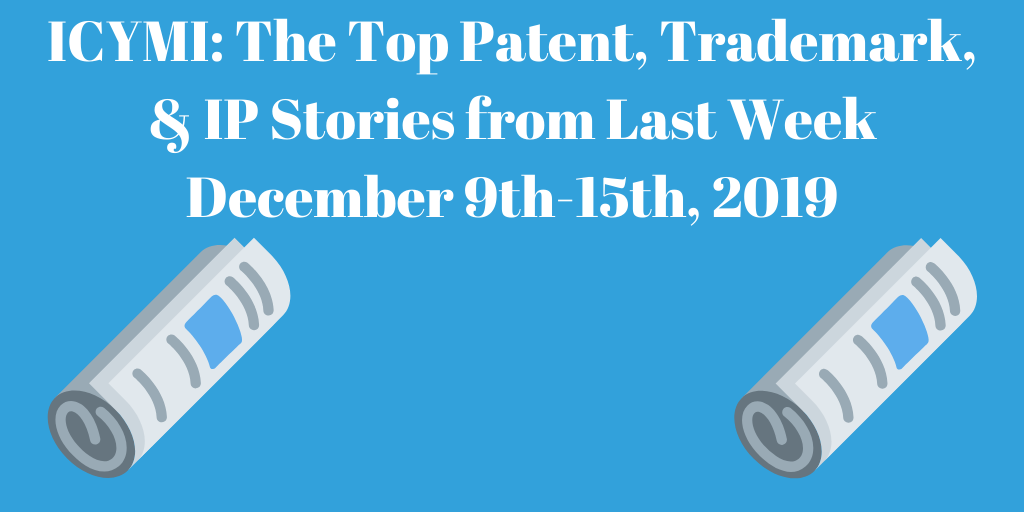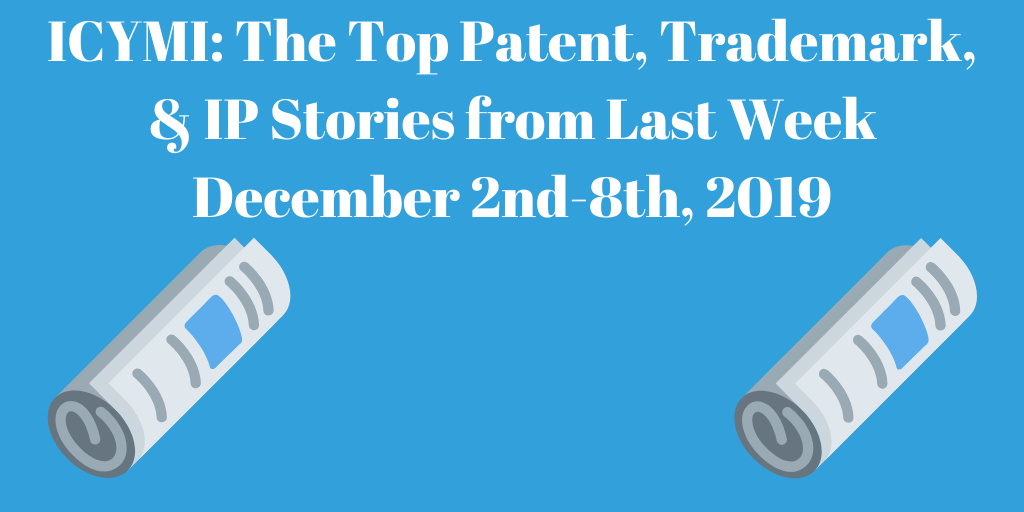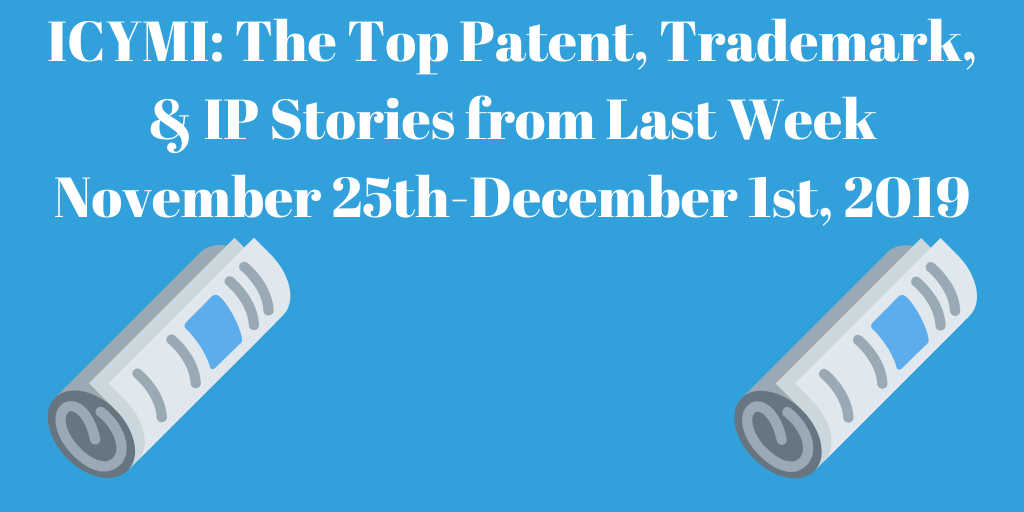Top Patent, Trademark, and IP Stories from Last Week (12/30/19-1/5/20)
Every week, we will be highlighting the top patent, copyright, trademark, intellectual property, etc. stories of the previous week in our “In Case You Missed It” segment. The list itself is in no particular order and includes a wide range of stories from the patent world that are informative, noteworthy, or just plain bizarre. The stories included encompass everything from Supreme Court cases to insights into growing industries. Please feel free to comment your thoughts on the stories or share an important one we missed!
“E.U. Patent Office Says Only Humans Can Be Inventors as It Rejects Applications for Beverage Holder and Signalling Device Created by Artificial Intelligence”
Over the summer we covered a story out of the U.K. where an AI algorithm named “Dabus” created two novel inventions on its own without any human intervention. Inventions included a food container with fractal shape that would allow for more efficient storage and transportation and a light with “uniquely-identifiable signal beacons” that are more recognizable to the human brain.
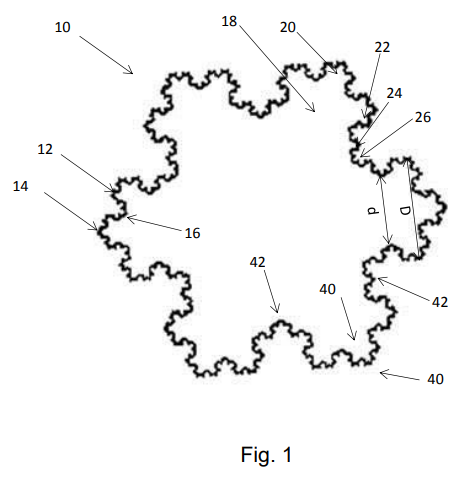
When the academics behind the AI filed patent applications for its inventions in the E.U., they did so with the intention of giving the AI full credit. In doing so, they started lively debates in patent offices around the world. Both the U.K. Patents Act 1977 and European Patent Convention require inventors be “natural persons.”
Now, the EUIPO has come to a decision, rejecting the applications on the basis that they “do not meet the requirement of the EPC that an inventor designated in the application has to be a human being, not a machine.” The agency will provide a more detailed rejection later this month but for now, the point is fairly clear- AI are not entitled to receive patents. To read more about this story, click here (via Daily Mail, January 3rd, 2020).
“U.S. District Court Rules in Favor of Lilly in Alimta Vitamin Regimen Patent Lawsuit”
Last week a U.S. District Court ruled in favor of pharmaceutical giant Eli Lilly and Company in their patent infringement case against drug maker Apotex Inc. Apotex was planning to sell “alternative salt forms of pemetrexed” prior to the May 2022 expiration of Lilly’s Alimta (pemetrexed for injection) patent. Alimta is a chemotherapy drug used in the treatment of advanced nonsquamous non-small cell lung cancer (NSCLC). Apotex will now have to wait until the expiration of Lilly’s patent in 2022 before the drug can reach the market. The patent was once at the center of a PTAB discussion in 2017 regarding its patentability. To read more about this story, click here (via Eli Lilly and Company, December 30th, 2019).
“New Apple Patent Imagines Virtual Speakers That Can Simulate Sound From Anywhere in the Room”
A new patent from Apple outlines a speaker unit capable of overlapping sound waves in a way that gives the listener the impression that noise is coming from any particular location in a room. To do this, audio is cut into three distinct paths by an audio processing system. The first path has “a direct gain and a direct virtual source algorithm operating on the audio signal.” The second path has “a number of early reflection gains that are applied to the audio signal, which produces multiple early reflections.” The third path has “a reverberation gain and binaural reverberation filters operating on the audio signal” as well as a crosstalk canceler.
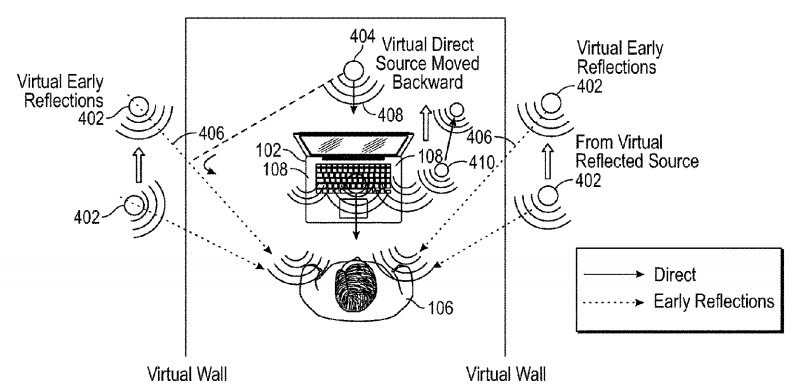
When combined, these paths in the audio provide an illusion of depth, distance, angle, and location of sound and give the listener the feeling of “being there.” The claimed invention will provide greater immersion than conventional speakers. Apple indicates movies, television, video games, and more will be “greatly enhanced” by the technology. To read more about this story, click here (via The Verge, December 31st, 2019).
“Cardiologist Files Patent Suit Against Apple for Arrhythmia Feature”
Dr. Joseph Wiesel, a cardiologist based in New York, has filed suit against Apple alleging the company of infringing on his 2006 atrial fibrillation detection patent with the Apple Watch’s new atrial fibrillation detection feature. Wiesel’s patent describes an apparatus that determines “possible” atrial fibrillation through the detection of “irregular pulse rhythms from a succession of time intervals each corresponding to a respective interval of time between successive pulse beats of a sequence of the pulse beats.” Wiesel has several atrial fibrillation detection patents going back to 1999 and is one of the pioneers in the area. The FDA gave Apple their approval to include the feature in their watch in 2018. To read more about this story, click here (via MedCityNews, December 30th, 2019).

